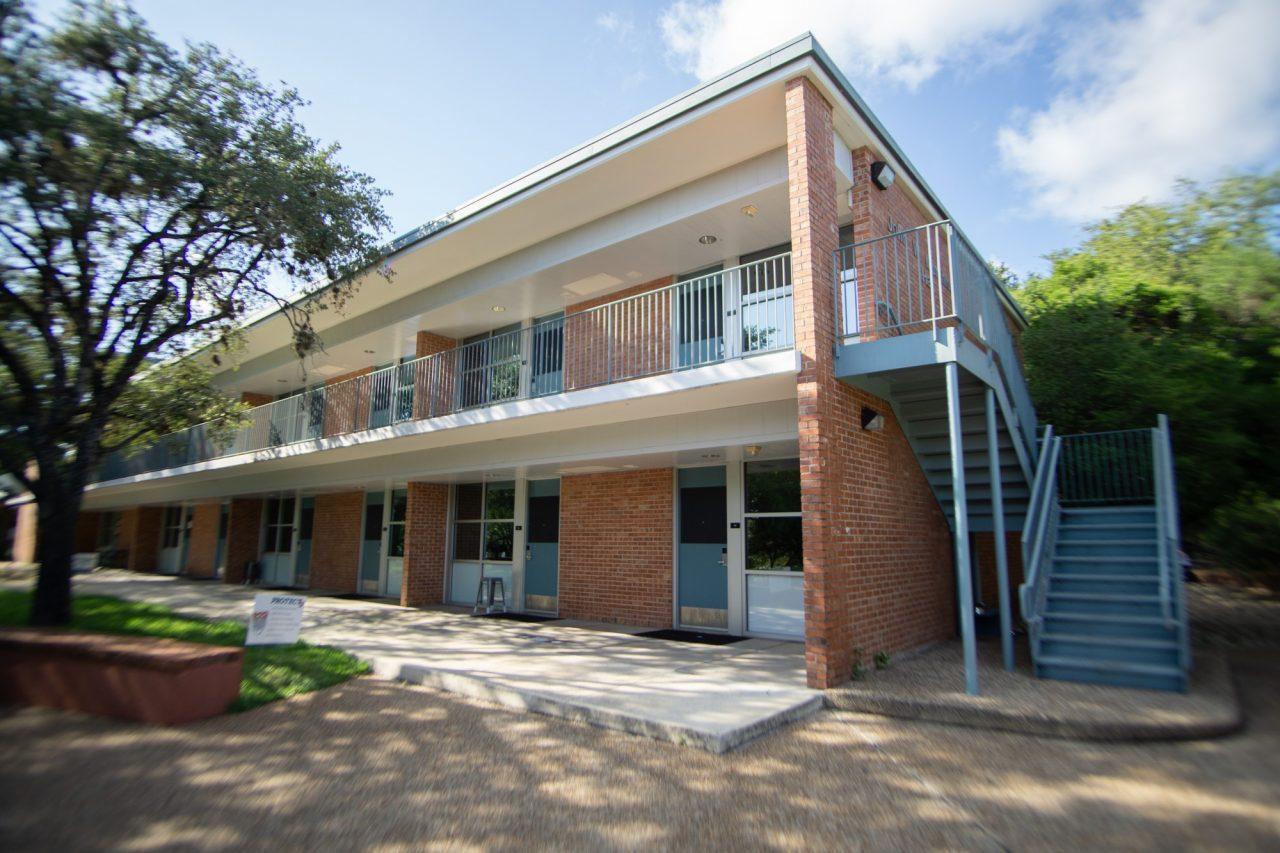Photo by Kate Nuelle
After shuffling through lines in Coates Auditorium holding small sheets of paper, students returning to campus for the semester got a nasal swab up their nose to test for COVID-19, and a few days — or weeks — later, received their test results. Almost all results came back negative, but what happens to those few students who test positive?
“Murchison was set aside for isolation suites,” said Courtney Cunningham, Care Navigator for Trinity’s coronavirus response team. “[It’s] 10 days of staying put.”
After the student is notified of the positive test result by the medical team, the students’ parents and roommates or suitemates are informed. The medical team operating out of Murchison then begins contact tracing efforts to verify who may or may not have been at risk of exposure.
Murchison, which houses a makeshift headquarters for Trinity’s COVID-19 clinic in its lounge, is also housing students in isolation and quarantine, serving as the center for ongoing surveillance testing.
“No students are currently in isolation,” said Cunningham, “and it’s been a while since we’ve had any positive results.”
Only six Trinity students have ever been in Murchison for isolation purposes and they were all from the initial round of mass testing. Murchison is currently equipped to handle approximately 25 students in isolation or quarantine, with no students sharing a suite.
The on-campus medical team headed by Jose Plata, medical director of the Trinity COVID-19 team, determines on a case-by-case basis whether students need to enter quarantine or enter isolation. Isolation is specifically for students who have tested positive for COVID-19 and lasts ten days, so long as they have been symptom-free for 24 hours prior to release. Quarantine is for students who are suspected to have been exposed to COVID-19 and lasts 14 days. Due to COVID-19’s lengthy incubation period, false negative tests are possible within that two-week period, so the 14-day time limit must run out to be safe.
“We didn’t have any students who really developed symptoms,” said Cunningham.
While in isolation, students are cared for by the Care Team through a variety of services including medical care, academic and counseling support, trash, laundry and the delivery of packages, library materials and meals.
Meals are hand-delivered twice a day, as well as extra food for breakfast and POD-like extras by request. Bruce Bravo, senior director of Conferences and Auxiliary Services and co-chair of the Facilities and Operations working group, personally made the deliveries to isolated students the first few days of the semester.
“The students ran the gamut of emotions from high anxiety, denial to acceptance,” said Bravo. “The institution [recognized] early in the planning that emotional support to our impacted students would be essential.”
“[For] many of them it was the first time [they’d] been on campus or been away from home,” said Cunningham. “[They hadn’t] made friends, don’t know faculty, barely made out of orientation.”
Academic and counseling support was a priority of the Care Team and has been the responsibility of Emma Phearse, liaison of the Student Success Center.
Phearse is the go-between for isolated students and professors, counselors and places like Student Accessibility Services. With regard to learning online while being infected with COVID-19, students have expressed varying levels of concern.
“Some feel comfortable,” said Phearse. “Others want their professors to be aware of their remote learning needs. It’s harder to focus on class when your mind is elsewhere.”
For some students, having that extra layer of support with professors is comforting.
“[It can be] helpful to have another staff member connect with a professor,” said Phearse. She said that the Care Team also works to “protect student privacy as much as possible.”
Isolated students are also encouraged to head outside briefly each day to safely enjoy the outdoors and get in physical exercise.
“I’m impressed and honored to be a part of the overall team to address that holistic level of care where students feel supported and know that their needs are going to be met,” said Phearse. “Know that you are supported.”
The Care Team has been impressed with how the few students in isolation have handled their experience.
“They’ve been through 2020 like the rest of us,” said Cunningham. “They were very understanding and wanted to protect the community and just seemed to roll with it. I really thought it would be a little harder.”













